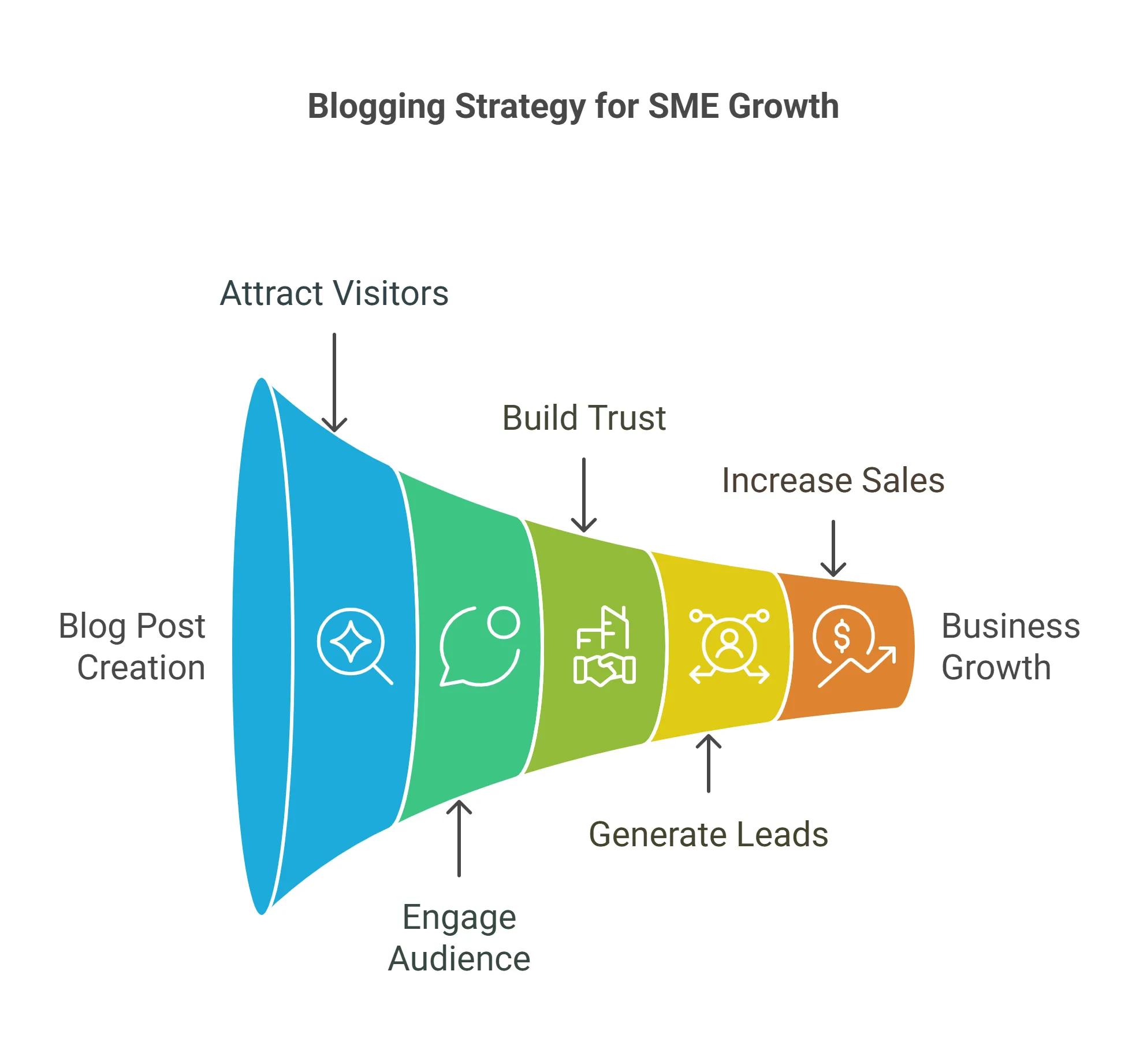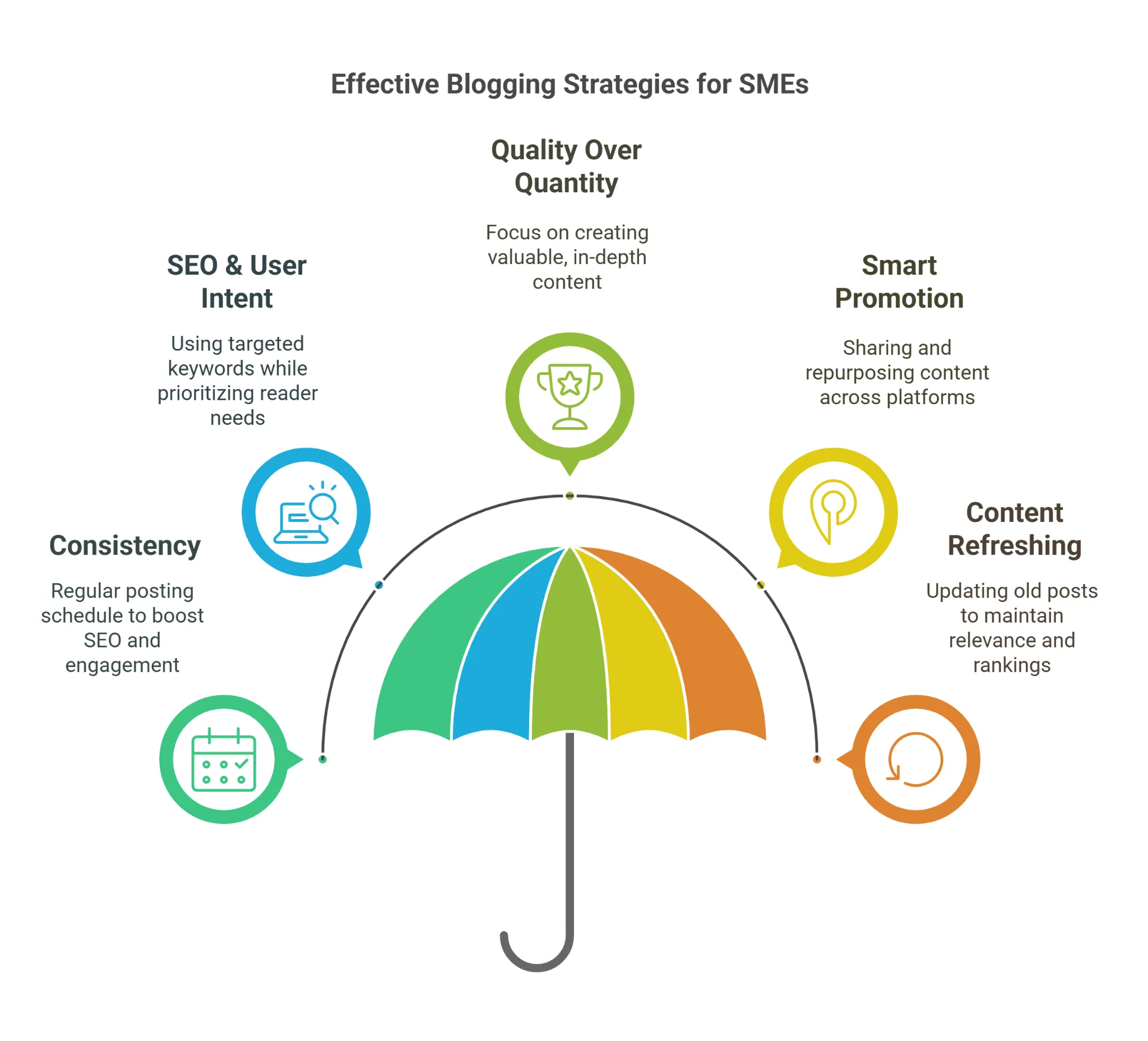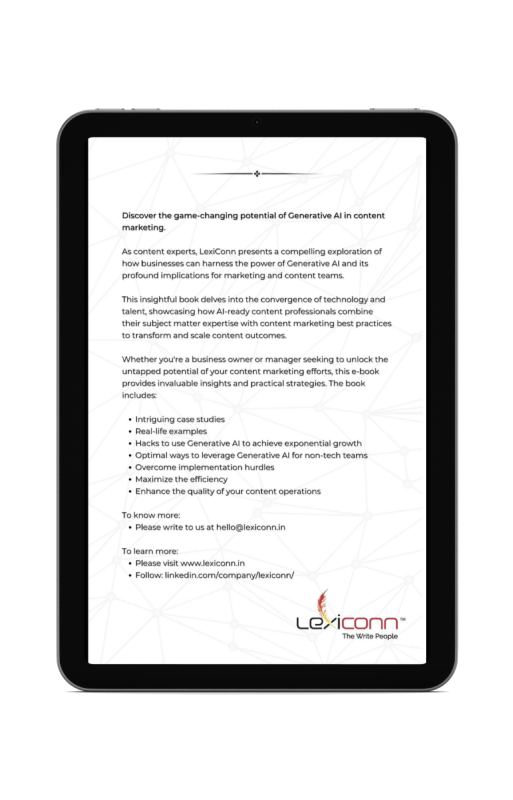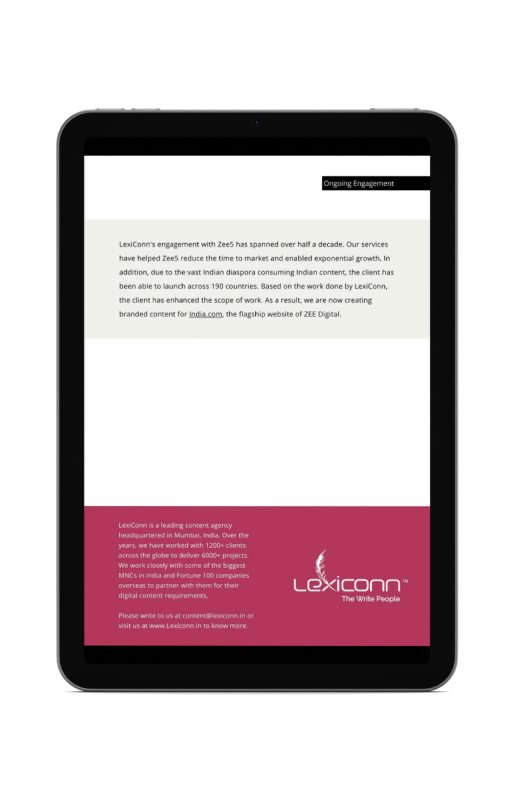

(Source)
(Alt-text: Why blogging is important for SMEs)
Running a small or medium-sized enterprise (SME) in today’s competitive digital world requires more than just a great product or service. To stand out, attract customers, and drive consistent growth, businesses must focus on building a strong online presence. One of the most powerful ways to do this is through blogging for SMEs.
Many SMEs hesitate to start a blog, assuming it’s only for large corporations or media companies. However, why blogging is important for SMEs goes far beyond just having a few articles on a website. Actively maintained blogs enhance websites by increasing the number of indexed pages by 434% and attracting 97% more inbound links.
If you're still unsure whether blogging is worth the investment, this blog will break down the business case for content marketing, showing how an effective blogging strategy can fuel growth.
We'll explore the key benefits, provide the best blogging strategies for small businesses, and explain how a website audit can help optimize your content for maximum impact.
A blog is more than just a collection of articles—it’s a powerful content marketing tool that helps businesses engage with their audience, improve search visibility, and convert visitors into customers. Here’s why blogging for SMEs is not just beneficial but essential in today’s digital age.
Customers trust businesses that provide valuable, informative content. By consistently publishing high-quality blogs, SMEs can position themselves as experts in their industry.
A well-written blog:
Whether you’re in e-commerce, tech, healthcare, or any other industry, a blog helps demonstrate expertise and credibility, making it easier for customers to choose your brand.
One of the biggest advantages of blogging for SMEs is its impact on search engine optimization (SEO). Google favors websites that consistently publish fresh, relevant, and high-quality content.
By incorporating targeted keywords, internal links, and SEO strategies, blogs help:
According to HubSpot, businesses that blog get 55% more website visitors than those that don’t. Regular blogging leads to more visibility, more leads, and ultimately more sales.
|
Read: The Complete Guide to Conducting a Technical SEO Audit |

A well-planned blogging strategy delivers tangible benefits to small and medium-sized enterprises (SMEs). From driving leads and improving search rankings to building customer relationships, blogs serve as long-term marketing assets that continue to generate value over time.
Here’s how blogging for SMEs can transform business growth:
A business blog is more than just a content hub—it’s a lead-generating machine. Every blog post you publish creates a new opportunity to attract potential customers, guide them through the sales funnel, and convert them into paying clients.
For example, an SME offering digital marketing services can publish a blog titled “10 SEO Mistakes That Are Hurting Your Business” with a CTA at the end like:
"Need an SEO audit? Get a FREE website analysis today!"
This naturally leads readers to take action, increasing inquiries and sales.
A blog acts as a direct communication channel between a business and its audience. It allows SMEs to share insights, answer common customer questions, and showcase expertise, all while creating meaningful interactions.
A business selling eco-friendly products, for instance, can create blog posts like:
✅ “5 Ways to Reduce Plastic Waste in Your Daily Life”
✅ “How Sustainable Shopping Saves You Money”
By providing educational and solution-driven content, businesses build trust and credibility, making it easier to convert readers into customers.
Paid advertising is expensive, but blogging delivers sustainable results at a fraction of the cost. Unlike Google Ads or social media ads, which stop generating traffic once the budget runs out, blogs remain evergreen, continuing to attract visitors and generate leads long after publication.
For SMEs on a tight budget, blogging provides an affordable and scalable way to market their brand without ongoing high costs.
If your business isn't showing up on Google's first page, you’re losing potential customers to competitors. Blogging helps improve search rankings by ensuring your site has fresh, relevant, and keyword-optimized content that search engines favor.
For instance, an SME in home renovation services can publish a blog post titled:
"How to Renovate Your Kitchen on a Budget – 5 Proven Tips"
This post can rank for long-tail searches like:
✔ “Affordable kitchen renovation ideas”
✔ “Budget-friendly home remodeling tips”
Businesses can drive organic traffic and attract customers actively searching for their services by targeting specific search queries.
A blog is an extension of your brand voice, values, and mission. By consistently sharing stories, insights, and industry expertise, SMEs can build a recognizable and trusted brand identity.
For example, an SME specializing in handmade organic skincare can publish behind-the-scenes blogs on how their products are made, reinforcing their commitment to quality and sustainability. This authentic content helps build trust and keep customers returning.
A blog is not just a standalone content piece—it fuels multiple marketing channels.
For example, an SME selling fitness equipment can publish a blog post like “Best Home Workouts for Beginners”, then:
This approach ensures blog content continues generating value across different channels.
Customers don’t make instant buying decisions—they go through a journey of research, consideration, and trust-building. A blog guides them through this process by providing the right content at each stage.
By crafting blog posts that align with different stages of the customer journey, SMEs can move leads closer to conversion.
Unlike paid ads that stop delivering results once the budget runs out, a well-written blog continues driving traffic for months or even years.
For instance, a blog post titled “How to Improve Local SEO for Small Businesses” will remain relevant for years with minimal updates, continually bringing in new leads.
Many SMEs struggle to compete with big-budget corporations in paid advertising and brand recognition. Blogging levels the playing field by allowing SMEs to:
A well-optimized blog strategy can outperform expensive paid ad campaigns in the long run, giving SMEs an organic and sustainable growth advantage.
A well-structured blog enhances overall website performance, making it easier for visitors to navigate and find relevant information. This improves user experience (UX) and signals quality to search engines.
For SMEs undergoing a website audit, blogs serve as an integral part of optimization efforts, improving content structure, internal linking, and engagement metrics.

A blog only delivers results if backed by a well-defined strategy. Here’s how SMEs can make their blogging efforts more effective:
Implementing these strategies ensures blogging for SMEs isn’t just an effort—it’s a growth engine for visibility, engagement, and conversions.
Creating and optimizing blog content requires SEO, content marketing, and website performance expertise. At LexiConn, we help SMEs develop winning blog strategies that enhance website visibility, engagement, and lead generation.
🔹 Proven expertise in content marketing & website optimization.
🔹 Customized strategies tailored to each business’s goals.
🔹 Data-driven insights to improve search rankings & lead generation.
Book a FREE 30-minute content consultation today! Visitwww.lexiconn.in or email [email protected] to get started.
Blogging isn’t just a marketing trend—it’s a necessity for SMEs aiming for long-term success. From improving SEO rankings and generating leads to establishing brand credibility and engaging customers, blogging delivers ROI that traditional marketing simply can’t match.
Businesses that invest in high-quality, strategic blogging see higher search visibility, better audience retention, and more inbound inquiries. However, to fully leverage the power of blogging, SMEs must focus on consistent publishing, search optimization, and content quality.
Don’t let your website go unnoticed! Start building a high-impact blog with expert guidance from LexiConn. Schedule your FREE consultation today at www.lexiconn.in.



I have read and accept the Privacy Policy
Read More